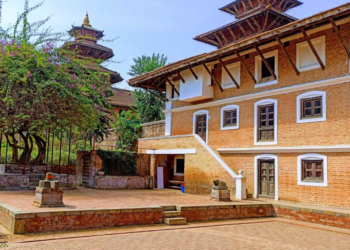KATHMANDU: Ayurveda has enormous potential to earn foreign exchange for Nepal besides boosting its domestic economy.
Ayurveda is endemic to Nepali culture as a system of medicine it is historically rooted in ancient Hindu culture dating back to not less than five thousand years. Among the other systems of medicine such as Chinese, Unani, Greece, and English, it is the oldest one often acting as a complementary and alternative medicinal system for many.
Ayurveda acts both ways – preventive as well as curative. People from different parts of the world get Ayurveda treatment at cost effective prices from different centers spread all across the country. It offers natural cure by employing medicinal herbs (rare ones only available in the Himalayas and its vicinity) and other natural methods of cure. Ayurveda is attracting many people as the cost of English medicine and its health technology getting expansive day by day.
Nepal Ayurveda Medical Council was established in 1988 under the Nepal Ayurveda Medical Council Act of 1988. It is an autonomous body engaged in promoting and propagating Ayurveda within the country. Nepal Ayurveda Medical Council (NAMC) has its own code of ethics to be followed by doctors practicing Ayurveda.
It also looks into the quality and contents of learning, teaching and practicing Ayurveda within the country. Ayurveda provides an alternative career for aspiring doctors, business persons, pharmacists, and others to find the future prospects of growth in it. Ayurveda Campus (Kirtipur, Tribhuvan University), Kapilbastu Multiple Campus, Janata Campus (Vidhyapitha), Uttam Dhanwantari Ayurveda College, Jagadamba Ayurveda College( Gaura), Nikhil Ayurveda Institute( Pokhara), Janak Ayurveda Campus (Vidhyapitha, Janakpur) are few examples of institutions offering Bachelor and certificate courses in Ayurveda.









Comment